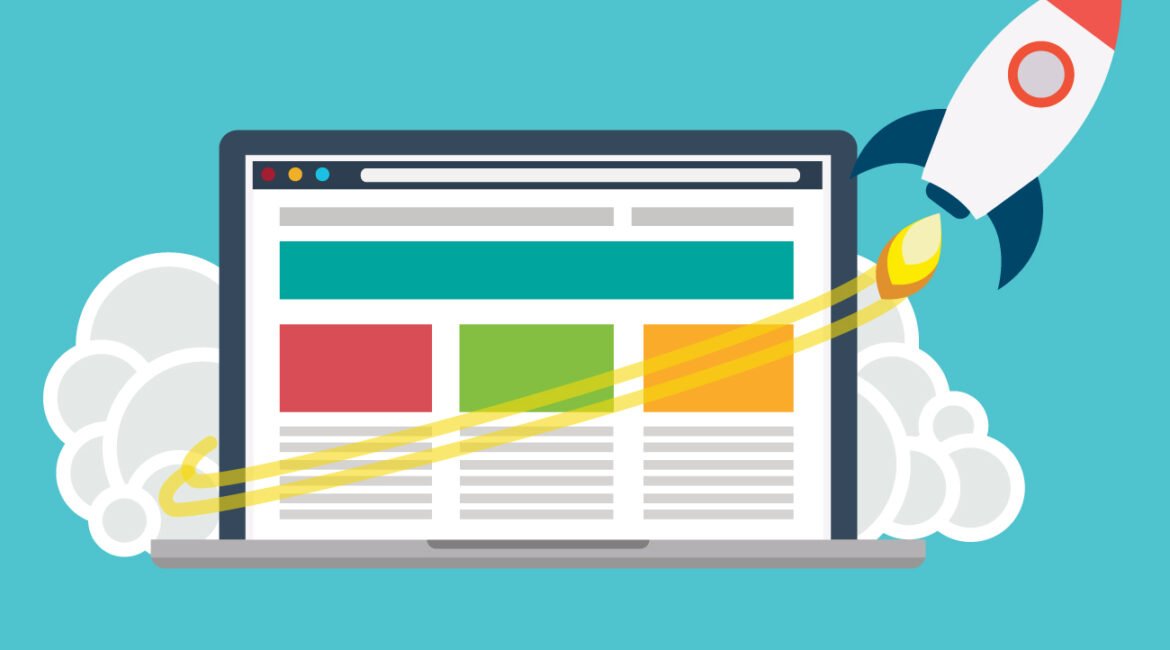In today’s fast-paced digital world, people expect websites to load quickly. A slow-loading site not only frustrates visitors but also hurts your business in multiple ways. Website load time has a direct impact on user experience, SEO rankings, conversion rates, and, ultimately, your bottom line.
In this blog, we’ll explore why speed matters and how improving your website’s load time can lead to better business results.
1. First Impressions Matter
Your website’s load time is often the first impression visitors have of your business. If it takes more than a few seconds to load, users may leave before even seeing what you have to offer. In fact, studies show that 53% of mobile users will leave a site that takes longer than 3 seconds to load. This results in high bounce rates and missed opportunities for engagement or sales.
A fast website creates a seamless user experience, making visitors more likely to stay, explore, and engage with your content.
2. Higher Conversion Rates
Slow load times can dramatically affect your conversion rates. Research has shown that a 1-second delay in page load time can lead to a 7% reduction in conversions. Whether you’re selling products, offering services, or collecting leads, each second counts.
For example, if your website generates $100,000 per month, a 1-second improvement in page speed could potentially increase that revenue by up to $7,000. Speed not only impacts user satisfaction but also the likelihood of them making a purchase or completing a desired action on your site.
3. Better SEO Rankings
Google has made it clear that page speed is a ranking factor in its algorithm. Websites that load faster are more likely to rank higher in search engine results pages (SERPs). This means that if your site is slow, you may be losing out on valuable organic traffic and visibility.
By optimizing your website’s load time, you can improve your SEO efforts, increase your chances of being found by potential customers, and drive more traffic to your site.
4. Improved Mobile Experience
Mobile users account for more than half of global web traffic. If your website isn’t optimized for speed on mobile devices, you could be losing a large portion of potential customers. Mobile-first indexing is now the standard for Google, meaning the performance of your mobile site has a direct impact on your overall SEO rankings.
Ensuring that your website loads quickly on mobile devices will not only enhance the user experience but also help you capture and retain more mobile visitors.
5. Reduced Bounce Rates
Bounce rate is the percentage of visitors who leave your site after viewing only one page. A slow website is one of the main contributors to high bounce rates. If your site takes too long to load, users are more likely to abandon it and move on to your competitors.
Fast websites keep users engaged, encouraging them to explore multiple pages, consume content, and take action, which ultimately leads to higher customer retention and satisfaction.
6. Enhanced User Experience
A fast-loading website provides a better overall user experience. When users can navigate your site without delays, they are more likely to find what they’re looking for and engage with your content. This leads to higher satisfaction, more positive reviews, and increased customer loyalty.
In contrast, slow load times create a negative user experience that can harm your reputation and drive customers away.
7. Lower Operational Costs
Website speed also affects your hosting and infrastructure costs. Slow-loading sites often require more server resources to handle requests, which can increase your hosting expenses. By optimizing your site for speed, you can reduce the amount of data that needs to be processed, leading to lower operational costs.
8. How to Improve Website Load Time
Improving your website’s speed doesn’t have to be complicated. Here are some actionable tips to help you get started:
•Optimize Images: Compress and resize images to reduce file sizes without sacrificing quality.
•Use a Content Delivery Network (CDN): CDNs help distribute your website’s content across multiple servers worldwide, reducing the load time for users regardless of their location.
•Enable Browser Caching: Caching stores elements of your website, so they don’t have to be reloaded every time a user visits your site.
•Minimize HTTP Requests: Reduce the number of elements on your page (scripts, images, CSS) that require loading.
•Enable Gzip Compression: Compress your website’s files to make them smaller and faster to download.
•Upgrade Your Hosting: Consider switching to a faster hosting provider or a dedicated server if your current one is too slow.
Conclusion
Website speed plays a crucial role in shaping the user experience, SEO rankings, and your business’s bottom line. A fast website keeps visitors engaged, improves conversion rates, and helps you stay competitive in search engine results. By investing in optimizing your site’s load time, you not only enhance your online presence but also drive better results for your business.
At Code Creators, we specialize in building fast, efficient websites that improve user experience and drive business growth. Contact us today to see how we can help you optimize your website’s speed and performance.





